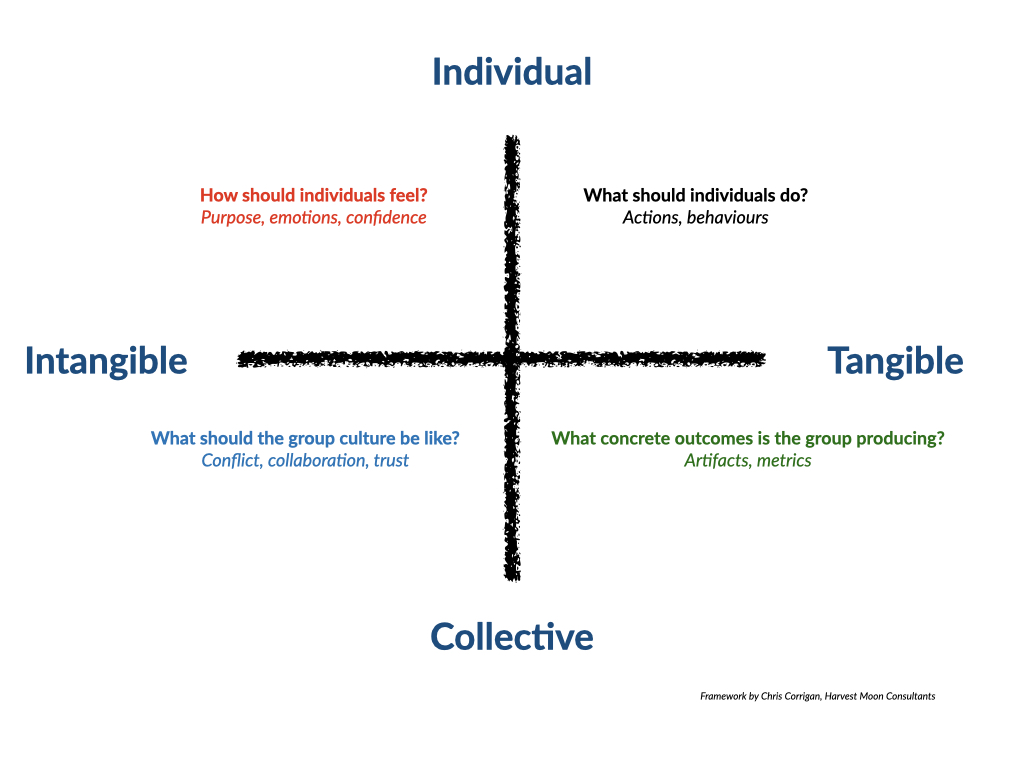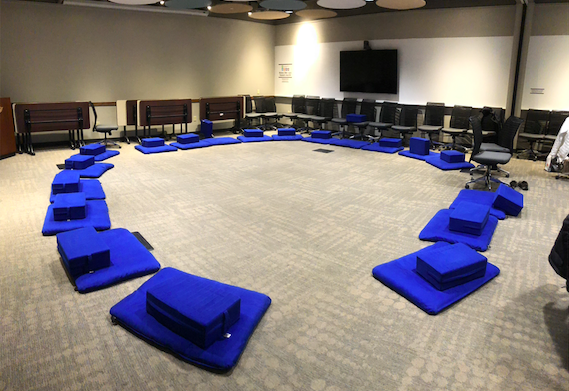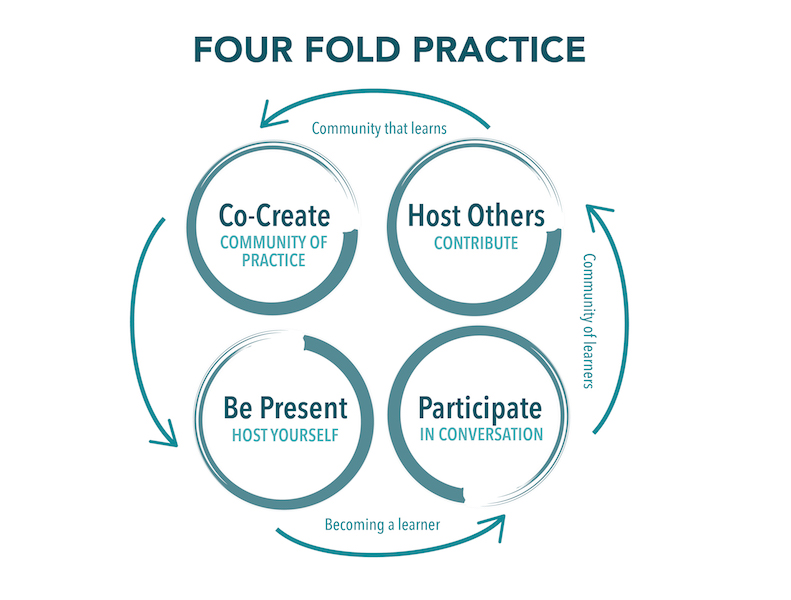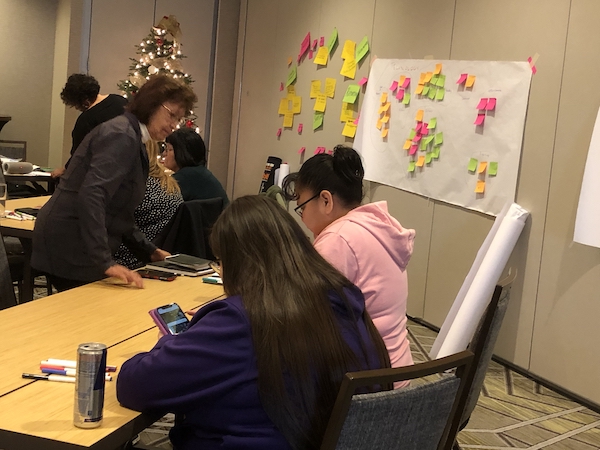
I love working with frameworks, of all kinds. Templates, canvases, questions, story spines…all the different kinds of ways of bringing a little form to confusion. As a person who specializes in complex facilitation, using a good framework is the wise application of constraints to a participatory process. It’s hard to get it right – sometimes I offer frameworks that are too tight and don’t allow for any creativity, and sometimes they are too open and don’t help us to focus. But when you are able to offer a group just the right degree of constraint balanced by just the right …

Facilitators are getting inundated with panicky requests to host meetings online. Some of us have the tech know-how to do this, and others don’t. Clients are feeling pressure and urgency to get teams up and running online and folks are hoping the important meeting that they have been working with for months can suddenly go online and get the same kinds of results. Here is some stuff to help you out. Slow down. Just because you are not hosting face to face does not mean you are not hosting. Make sure that you do the due diligence in designing and …

I’m in trouble. In the best way. So get ready for a long and rambling post about geeky dialogic philosophy and complexity practice. I’m a little bit known in some communities as a person that is writing and working with the notion of “container” in dialogic organization development. The word and concept itself comes from a lineage of thinking about the spaces inside which dialogue takes place, and there is certainly lots written about that. I think I first learned the term from the work of William Isaacs whose classic work, “Dialogue,” is a seminal reference in this field. He …

Part three in a series: Part one: Just what I needed Part Two: Where did this come from? Part three: a collection of patterns for design and facilitation. As I heard the story, the four fold practice was something of a flash of insight tied in with the original Art of Hosting offering made by Toke, Jan, and Monica. Somewhere in the forests of Northern California as the team was preparing to offer its first Art of Hosting training, somebody woke up one morning, after a few days of discussion and design with the strong sense that meaningful conversations had …

One of my mantras that helps keep me focused when I’m designing a process is “I’m not planning a meeting, I’m planning a harvest.” This helps me focus on need and purpose and helps me choose or create processes that make good use of our time together. Facilitators can be guilty of the sin of falling in love with their methods and tools. Especially when we learn a new thing, we are desperate to try it out, sharing our zeal for this fresh thing we’ve discovered. In my own experience, many times that results in the meeting being about my …

